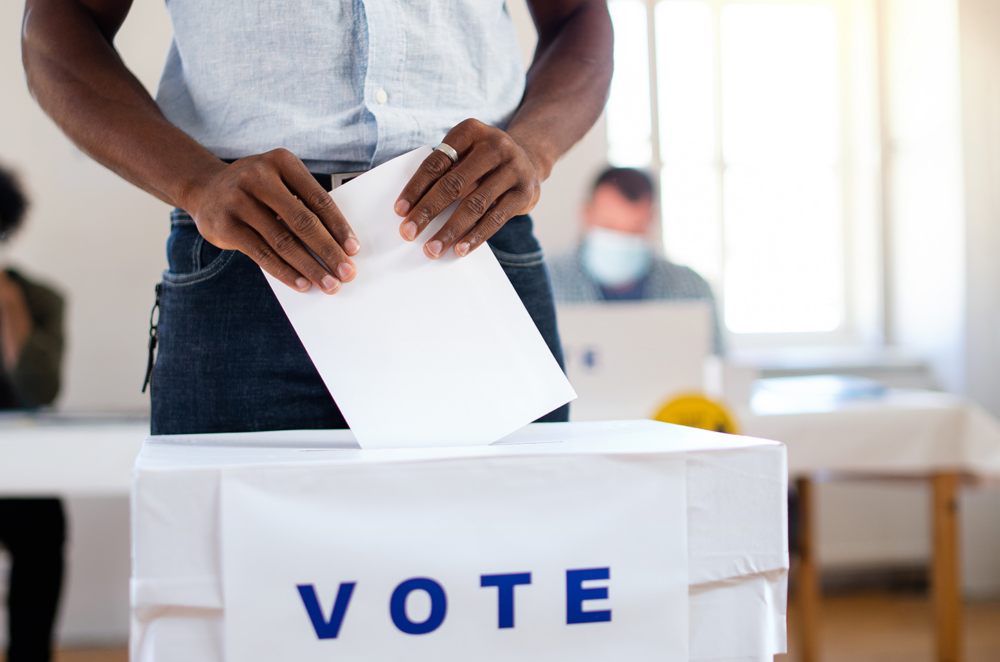Lawsuit Filed Against Missouri Over State Motor Vehicle Agency’s Failure to Provide Federally-Mandated Voter Registration Services

Secretary of State, Department of Revenue in Knowing Violation of the National Voter Registration Act of 1993
JEFFERSON CITY, Mo. – The League of Women Voters of Missouri and the St. Louis and Greater Kansas City Chapters of the A. Philip Randolph Institute today filed a lawsuit against the state of Missouri for failing to comply with federal voting rights law that ensures Missourians have access to voter registration and that their registration records are accurately updated. Voting rights watchdogs Dēmos, Advancement Project’s national office, and the ACLU jointly represent the Plaintiffs.
Today’s lawsuit alleges that the Missouri Secretary of State and the state’s motor vehicle agency, the Missouri Department of Revenue (DOR) are flouting their obligations under the National Voter Registration Act (NVRA)—federal legislation that was designed to streamline the federal voter registration process, improve accessibility to voter registration, and increase the number of qualified voters properly registered. Specifically, the lawsuit alleges that DOR is failing to provide Missouri residents with the opportunity to register and update their registration information during various license and identification card transactions.
“The state’s violations make it harder for Missourians to register and exercise their fundamental right to vote,” said Naila Awan, Counsel at Dēmos. “Because voter registration is often one of the main obstacles people face in casting a ballot, failure to provide residents with federally mandated voter registration services undermines our democracy.”
In July 2017, the Plaintiffs informed the Missouri Secretary of State and Director of DOR that the state was failing to provide voter registration opportunities required by the NVRA.
“We have attempted time and again to engage the State and work to bring DOR into compliance with federal voting rights law,” said Kathleen Boswell, President of the League of Women Voters of Missouri. “While we had hoped to resolve these issues outside of a courtroom, the State’s continual refusal to adjust practices and ensure that DOR is providing Missourians with the opportunity to register as required under federal law has forced today’s course of action.”
Today’s complaint explains that DOR’s violations of federal law are particularly damaging to:
Such persons may not be provided the opportunity to register to vote or update their registration information.
“Missourians who change the address on their license or identification card by mail and online are particularly vulnerable to being disenfranchised,” said Sarah Brannon, Senior Staff Attorney for Motor Voter Enforcement at the ACLU. “The NVRA requires that such persons have their voter registration information updated automatically to reflect their new address unless they affirmatively request the update not occur. As it now stands, DOR is not only failing to send address update information to election authorities, but it is not even informing online and mail change-of-address customers that they need to update their voter registration information.”
When the Plaintiffs first informed Missouri that it was failing to meet its obligations under the NVRA, DOR was informing its online change of address customers that they needed to update their voter registration if they had moved, and was providing customers with information on how to do so. However, the state has actually made its practices worse since that time and removed all references to voter registration in the online change-of-address portal, leaving Missourians without the opportunity to participate in their democracy.
“Because low-income individuals move at higher rates, DOR’s failure to update voter registration information has serious consequences for Missouri voters who are already marginalized and whose needs often go unmet,” said Keith Robinson, President of the A. Philip Randolph Institute’s St. Louis Chapter. “Bringing DOR into compliance with federal law is essential to creating a more responsive democracy.”
Over 580,000 Missourians move within the state each year—approximately 200,000 of who move to a new electoral jurisdiction. When a voter’s registration information does not reflect their current address no matter whether they have moved within the county or not, the voter must cast a provisional ballot; and, if a voter has moved to a different election jurisdiction, their vote is discarded entirely.
“Year after year Missouri residents who have moved and are registered in the state but not their current election jurisdiction are denied their fundamental right to vote,” said Patricia A. Jones, President of the A. Philip Randolph Institute’s Greater Kansas City Chapter. “A large part of the reason our organization focuses so heavily on voter registration is to prevent these voters from being turned away at the polls. Each year we have to educate voters on the need to update their registration addresses and assist voters in making sure that their registration information is current.”
The number of voters who are disenfranchised because their address information has not been updated on the voter rolls is particularly high in the St. Louis and Kansas City areas—where a move inside and outside the city limits results in a change in election jurisdiction.
“Missouri’s embrace of voter suppression is perturbing,” said Denise Lieberman, Co-Director of the Power and Democracy Program at Advancement Project’s national office and Coordinator of the Missouri Voter Protection Coalition. “With the reckless and easily fixable violations of the NVRA documented in our lawsuit, it is not only clear that the state needs to do its job and get right with the law – we also need to root out Missouri’s culture of restricting the vote and ensure access to voter registration in advance of this year’s elections.”
The state of Missouri’s continued refusal to make the simple, yet consequential, changes requested come on the heels of disconcerting mismanagement of Missouri’s photo I.D. law, which is already being challenged in court.
“Missouri has knowingly and deliberately violated its duty to protect the people’s fundamental right to vote,” said Tony Rothert, Legal Director of the ACLU of Missouri. “We should be doing everything we can to encourage, rather than hinder, participation in our democracy.”
###